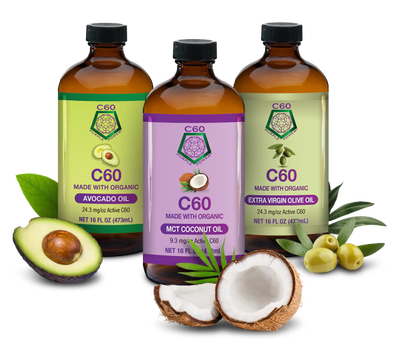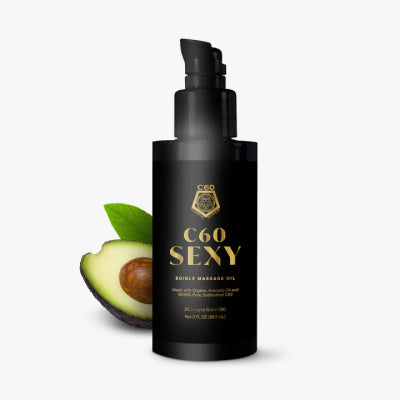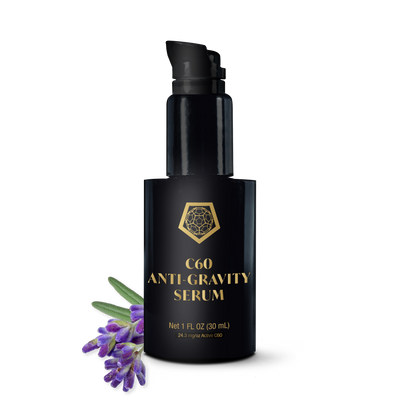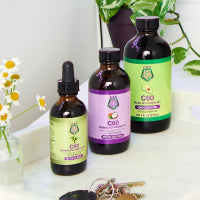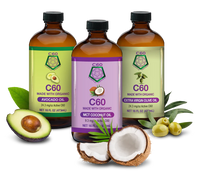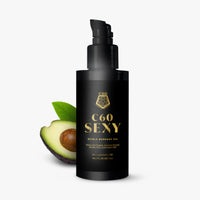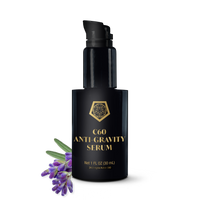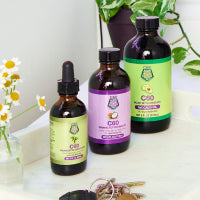It is safe to say that we all aspire to have a quality life that is filled with enjoyment, good health, and longevity. We know that you are aware of what you should be doing to stay healthy, however taking a deeper look at what you eat and how it affects your overall health and well-being is certainly worth considering.
In this blog, we discuss the importance of nutrition and how key nutrients in men’s diets, as well as a healthy lifestyle, may help them maintain optimal health and be their best at any age.
Assess Your Health Goals
You may have already started to think about what you can do to improve your present dietary intake. Though there isn’t a “one size fits all" men’s diet that can be prescribed or recommended for you, there are definitely things you can do to assess what you want to achieve in order to improve your health.
The first step is to determine where you are at now and what you want to accomplish. You are probably well aware of areas where you excel, as well as those areas that may need a bit more attention.
Once you have identified the behavior changes that you want to make, ask yourself if you are ready to commit to making them. Furthermore, remember that defining and implementing short-term, realistic and safe goals can help you maintain your healthy behaviors for a lifetime. By the way, you just need to keep trying; perfection is not required.
Start With 5 Components of a Healthy Diet
Here are a few tips for keeping it real when you're looking at creating some positive habits to support a healthy diet for most men.
1. Do a Plate Check
Being mindful of what you are putting on your plate can be a great place to start. Building a balanced plate means focusing on a variety of foods from each of the food groups.
Half of your plate is reserved for non-starchy vegetables and also fruit. Color is key and the brighter the better since these foods are rich in phytonutrients and antioxidants. Consuming adequate servings of fruits and vegetables can help protect against some chronic conditions.1
Protein-rich foods like lean meats, poultry, fish, and also beans and legumes make up 1/4 of your plate. But before you pile the protein on your plate, make sure you limit red meats and also watch processed meats.2
The other 1/4 of your plate should provide complex carbohydrates such as whole grains. Try adding organic ancient grains like quinoa, amaranth, millet, or Kamut (Khorasan wheat).
2. Amp Up Your Dietary Fiber
In addition to adding some soluble (dissolves in water) and insoluble fiber to your diet for helping your digestive tract to keep things going, fiber also lends to a sense of satiety or a feeling of fullness. In keeping you feeling full, you may be less likely to eat too many calories, thereby supporting healthy weight management efforts.3
Dietary fiber in your diet, also known as prebiotics, is a super source for fueling probiotics (healthy bacteria) in your gut or gastrointestinal (GI) tract.4 In fact, the role prebiotics play in supporting probiotics lends to supporting many health benefits.
Prebiotics help to increase the Bifidobacteria and Lactobacilli, as well as other probiotics in the gut. In doing so, they are changing the landscape of your microbiota which helps to support the immune system.4 They also help to produce beneficial metabolites like butyrate, propionate, and acetate, short-chain fatty acids (SCFA), plus support probiotics that aid in maintaining good gut integrity.5
Prebiotics also support certain probiotic strains that may be connected to the gut-brain axis which is a two-way communication channel between our gastrointestinal tract and our brain. These probiotics may positively influence the production of neurotransmitters like serotonin and dopamine that impact mood.6
3. Choose Plant Based Foods —Rich in Antioxidants and Polyphenols
You probably equate berries with antioxidant-rich foods and that’s right. Blueberries, raspberries, and blackberries are certainly power foods that provide us with the benefits of antioxidants. Other antioxidant-rich foods include pomegranate, broccoli, kale, spinach, green tea and dark chocolate to name a few.
Antioxidants as you well know, defend us from free radicals caused by oxidative stress. Since oxidative stress is partly caused by the inability of antioxidant enzymes to combat these free radicals, it’s crucial for our daily diet to provide us with antioxidants.7
Oxidative stress affects the cells in our entire body and when there aren’t enough antioxidants to scavenge the free radicals, oxidative stress takes its toll on our cells, tissues, and organs — including our eyes.
One particular group of antioxidants called carotenoids, which include lutein and zeaxanthin, are instrumental in supporting the health of the eyes’ lens, macula, and retina.8 They also help to absorb damaging blue light as well as protect your eyes from the sun’s damaging UV light.8 Other nutrients such as vitamins C and E, zinc, and quercetin also support eye health.7,8
If there’s a gap in your diet be sure to discuss this with your healthcare provider (HCP) since a dietary supplement may help to support your eye and overall health. In the meantime, think color every day and pack some of those delicious berries for a snack, or toss them in your kale and spinach salad! Get those antioxidants in at every meal — maybe this is the place you want to start to make positive changes to support your health!
4. Lean In For Some Lean Protein
Many men tend to equate health with a focus on physical activity and endurance. Maybe playing ball with the guys a few nights a week gets you feeling energized and helps melt away the stress from the day. You may also be noting some changes in your muscle health and that may be impacting your performance on the court. Did you know that as we age, there is a natural decline in our skeletal muscle mass and strength, making it a little tougher to maintain and gain muscle mass?9
By focusing on adding enough lean protein to your daily meals and snacks you can support your protein needs to ensure you meet your Recommended Daily Allowance for protein. However, you may need to consume additional protein if you are looking at the repair and synthesis of muscle after exercise, lifting weights, or even if you are looking to support healthy weight management.
With the right guidance from a Registered Dietitian and of course your HCP, the proper training, commitment and a balanced diet you can support your muscle health.
5. Substitute With Healthy Fats
Most of us are familiar with the Mediterranean Diet, in which olive oil is the preferred fat used in people’s diets due to its potential health benefits.10 Olive oil contains monounsaturated fats, which may support heart health, as well as healthy glucose management. It is most certainly a great alternative to saturated fats (think fats that are solid at room temperature).
Finding your way through the olive oil choices on the shelves of your grocery store may be daunting, but choosing an organic extra virgin olive oil would be the best fit to add to your diet. It contains antioxidants and polyphenols.
Although there is no daily requirement for how much olive oil one should consume. Try to include a little bit at every meal but just don't overdo it since all fats, healthy and not so healthy, are rich in calories. Think moderation — a drizzle here and there; on your salads, roasted brussel sprouts, or a few tablespoons in your pan to sear your lean protein is just perfect!
Finding Your Balance
It seems as if today we are bombarded with so many different points of view from omni channels whether it's social media platforms, podcasts, television, and even conversations among coworkers. Everyone has an opinion about what constitutes optimal nutrition, but not everyone is a credible resource.
First, keep in mind that no single diet is the “ideal” diet. In fact, while it may sound boring, the best plan of action for a healthy men's diet is moderation and sticking to the basics.
And when you are ready for a change, remember that you got this! Self-motivation and commitment are essential for keeping things on track. Speak with your HCP about the changes you want to make to support your health journey.
These statements have not been evaluated by the Food and Drug Administration. These products are not intended to diagnose, treat, cure, mitigate, or prevent any disease. Individual results may vary. The information provided in this blog is for educational and informational purposes only and should not be construed as medical advice.
Ken Swartz, MS is the co-founder, Chairman Emeritus, and former Chief Science Officer at C60 Power, a health and wellness company committed to delivering the highest quality Carbon 60 products available. Ken earned a Master of Science degree from the University of Colorado at Denver and a Bachelor of Science in Economics from Arizona State University.
References
- Lee, Seung Hee, et al. “Adults Meeting Fruit and Vegetable Intake Recommendations — United States, 2019.” MMWR Morbidity and Mortality Weekly Report, vol. 71, no. 1, Jan. 2022, pp. 1–9, https://www.cdc.gov/mmwr/volumes/71/wr/mm7101a1.htm. doi:10.15585/mmwr.mm7101a1.
- “Healthy Eating Plate.” The Nutrition Source, 9 May 2024, https://nutritionsource.hsph.harvard.edu/healthy-eating-plate Accessed September 19, 2024.
- Leech, Joe. “Fiber Can Help You Lose Weight — but Only a Specific Type.” Healthline, 11 Sept. 2024, healthline.com/nutrition/fiber-can-help-you-lose-weight. Accessed September 19, 2024.
- Carlson, Justin L., et al. “Health Effects and Sources of Prebiotic Dietary Fiber.” Current Developments in Nutrition, vol. 2, no. 3, Jan. 2018, p. nzy005, https://pubmed.ncbi.nlm.nih.gov/30019028/ doi:10.1093/cdn/nzy005.
- Mann, Elizabeth R., et al. “Short-chain Fatty Acids: Linking Diet, the Microbiome and Immunity.” Nature Reviews. Immunology, vol. 24, no. 8, Apr. 2024, pp. 577–95, https://www.nature.com/articles/s41577-024-01014-8 doi:10.1038/s41577-024-01014-8.
- Sasso, Janet M., et al. “Gut Microbiome–Brain Alliance: A Landscape View Into Mental and Gastrointestinal Health and Disorders.” ACS Chemical Neuroscience, vol. 14, no. 10, May 2023, pp. 1717–63, https://pmc.ncbi.nlm.nih.gov/articles/PMC10197139/ doi:10.1021/acschemneuro.3c00127.
- Bungau, Simona et al. “Health Benefits of Polyphenols and Carotenoids in Age-Related Eye Diseases.” Oxidative medicine and cellular longevity 2019 9783429. 12 Feb. 2019, https://onlinelibrary.wiley.com/doi/full/10.1155/2019/9783429 doi:10.1155/2019/9783429.
- Jaret, Peter. “Lutein and Zeaxanthin for Vision.” WebMD, 30 May 2023, webmd.com/eye-health/lutein-zeaxanthin-vision. Accessed September 19, 2024.
- Koopman, René, and Luc J C van Loon. “Aging, exercise, and muscle protein metabolism.” Journal of applied physiology (Bethesda, Md. : 1985) 106,6 (2009): 2040-8. https://journals.physiology.org/doi/full/10.1152/japplphysiol.91551.2008 doi:10.1152/japplphysiol.91551.2008.
- “Diet Review: Mediterranean Diet.” The Nutrition Source, 9 May 2024, https://nutritionsource.hsph.harvard.edu/2018/01/19/mediterranean-dash-diets-top-ranking/
Accessed September 19, 2024.

